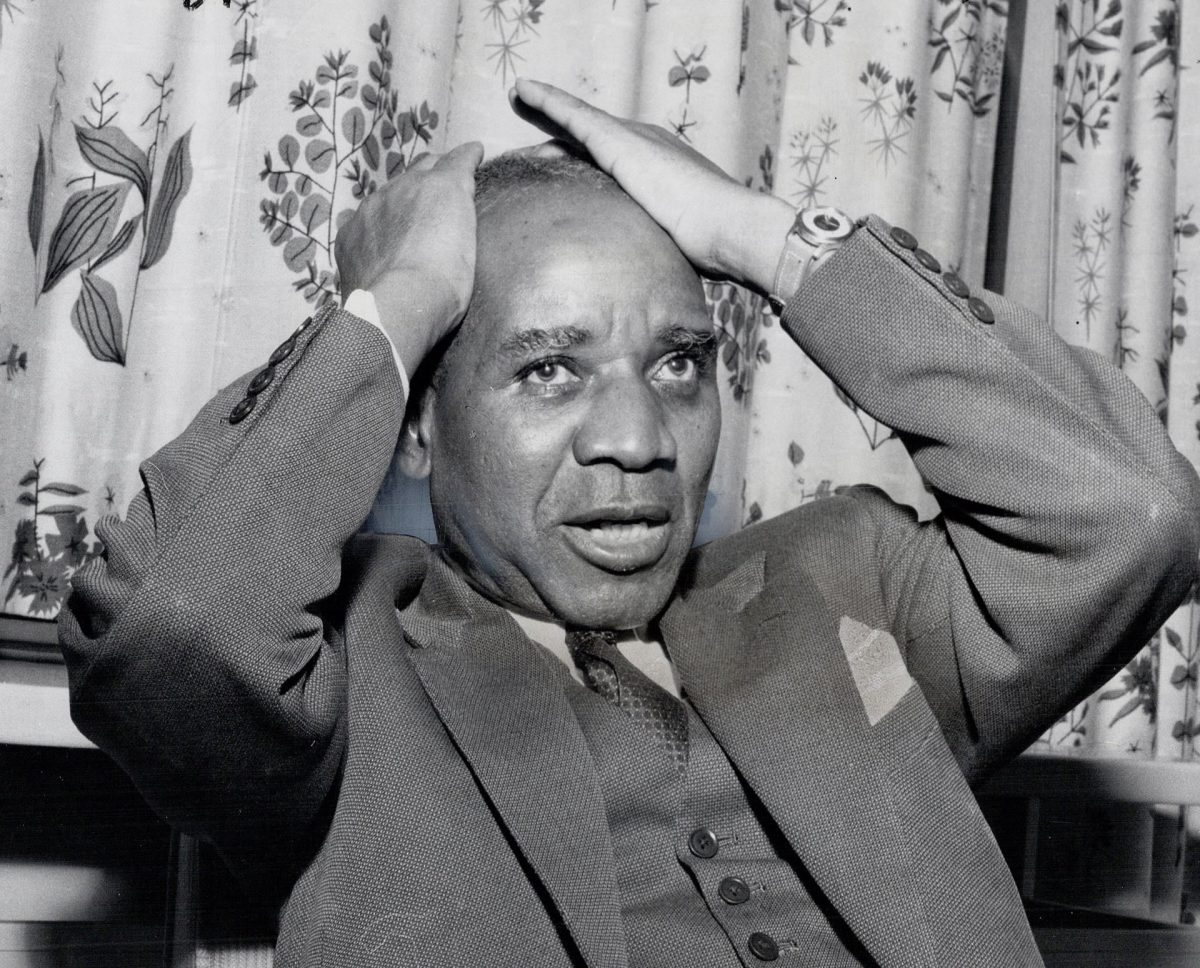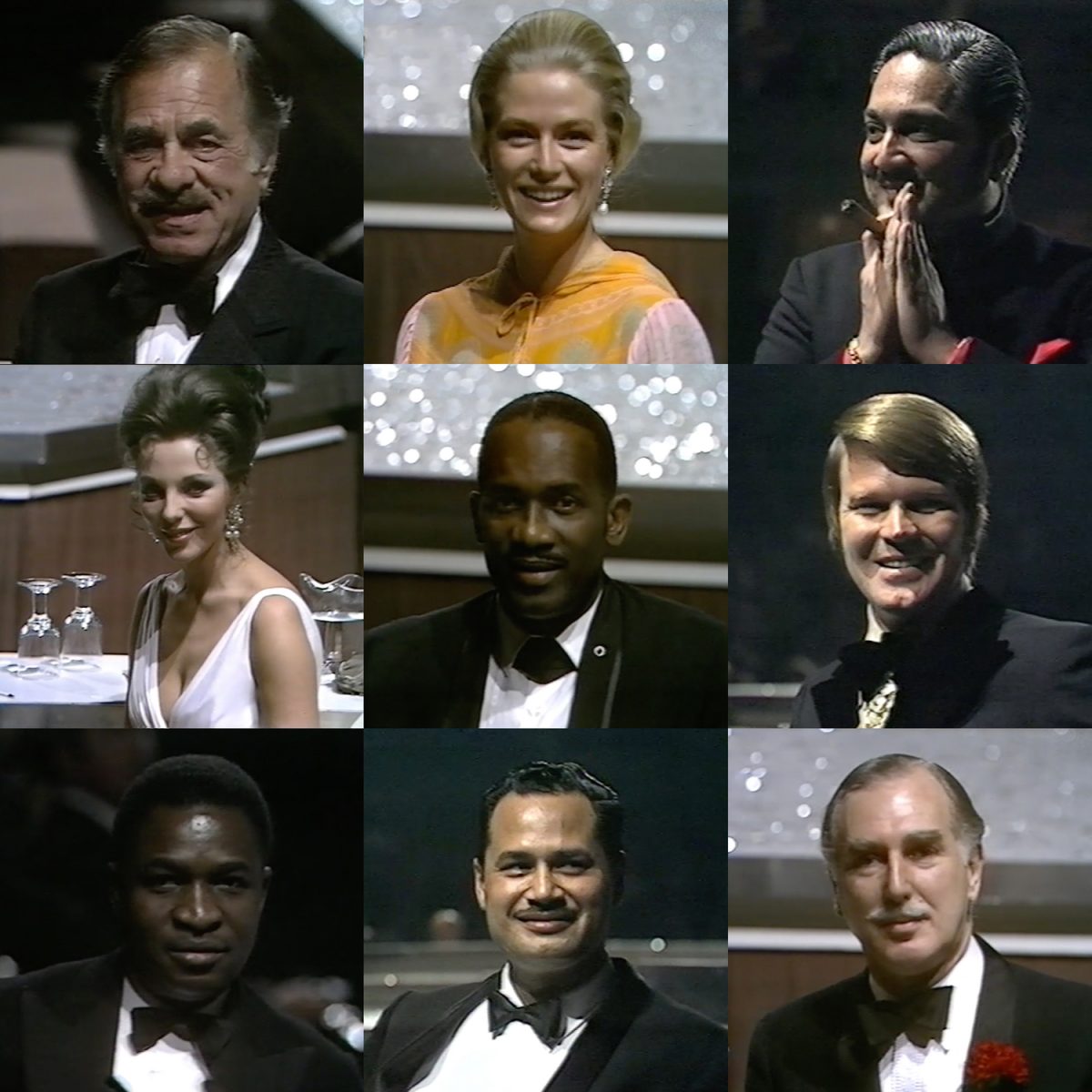
ON 21 November 1970, in his usual smooth and professional manner and while, “the girls are changing into their extremely expensive evening gowns”, Michael Aspel introduced the judges of that year’s Miss World. In the late Sixties and early Seventies Miss World was pretty well the most popular TV show in the world and the show regularly got over 20 million viewers in the UK alone. Considering the huge global audience, Eric Morley – the man in charge of the contest – chose some very odd judges.
The first judge on Aspel’s cue card that night was: “His excellency — the High Commissioner of Malawi”. ‘His excellency’ remained nameless but was warmly applauded by a Royal Albert Hall audience who had not the slightest idea who he was nor, almost certainly, the whereabouts of the country he represented. The south-eastern African country Malawi, formerly known as Nyasaland, had been colonised by the British eighty years previously in 1891. The initial Victorian administrators were given just £10,000 per year to employ ten European civilians, two military officers, seventy Punjab Sikhs and Eight-five Zanzibar porters – enought to administer and police about 1.5 million people.
Malawi gained independence in 1964 and became a republic two years later when Hastings Banda, the former prime minister, swept to power as the first President of Malawi in 1966. Banda called himself “Ngwazi” but enjoyed the full title: “His Excellency The Life President (Paramount Chief) Dr Hastings Kamuzu Banda, the Ngwazi, Minister of External Affairs, Minister of Defence, Minister of Agriculture, Minister of Justice, Minister of Works and Supplies, Minister of Women’s and Children’s Affairs and Minister of Community Services”. Banda soon declared Malawi a one party state and just before the Miss World competition in 1970 had made himself President For Life. Life didn’t mean life, in his particular case, and in 1994 he was ousted from power by a Malawian special assembly. His government was said to have regularly tortured and murdered political opponents and human rights groups estimated that at least 6,000 people were killed, tortured and jailed without trial during his ‘reign’. Hastings Banda died at the age of 99 (approximately – as his actual age was uncertain) in 1997.
Dr Hastings Kamuzu Banda,
Next up, and shown chatting and smiling with the Malawian High Commissioner and presumably unaware of any torturing or murdering his fellow judge may have colluded with, was: “that well-known film producer and chairman and managing director of EMI – Nat Cohen!” The sixty-five year old Cohen lived alone in a multi-mirrored, suede-lined, split-level bachelor pad in St James’s Place and in 1970 practically ran the entire British film industry. He was the son of a kosher butcher from London’s East End and had formed Anglo_Amalgamated Films in 1945. Six months before the Miss World contest Anglo-Amalgamated had been taken over by EMI and as part of the deal Cohen was made chairman of the entire company.
Cohen once commissioned two short films from the director Alan Parker who would later write about him: “Nat Cohen was an avuncular, vulgar man with a shifty, pencil thin moustache who looked more like a Soho strip club spiv than a film mogul. His lowbrow taste in film production had secured him a sizeable wallet and hence his puffed–up position running EMI. He drove up and down Wardour Street in a cream Rolls Royce with a number plate that said — “Nat 1” (just to rub it in the noses of all of us snobby and opinionated film industry oiks who were less than enamoured by him) to emphasise just who actually was the smart one.”
By 1973 Cohen was overseeing around 70% of the entire British film industry and his most successful films, financially, if not artistically, were On the Buses and Murder on the Orient Express. Nat Cohen died at the age of 82 in 1988 two years after EMI Films were sold to the businessman Alan Bond in April 1986.
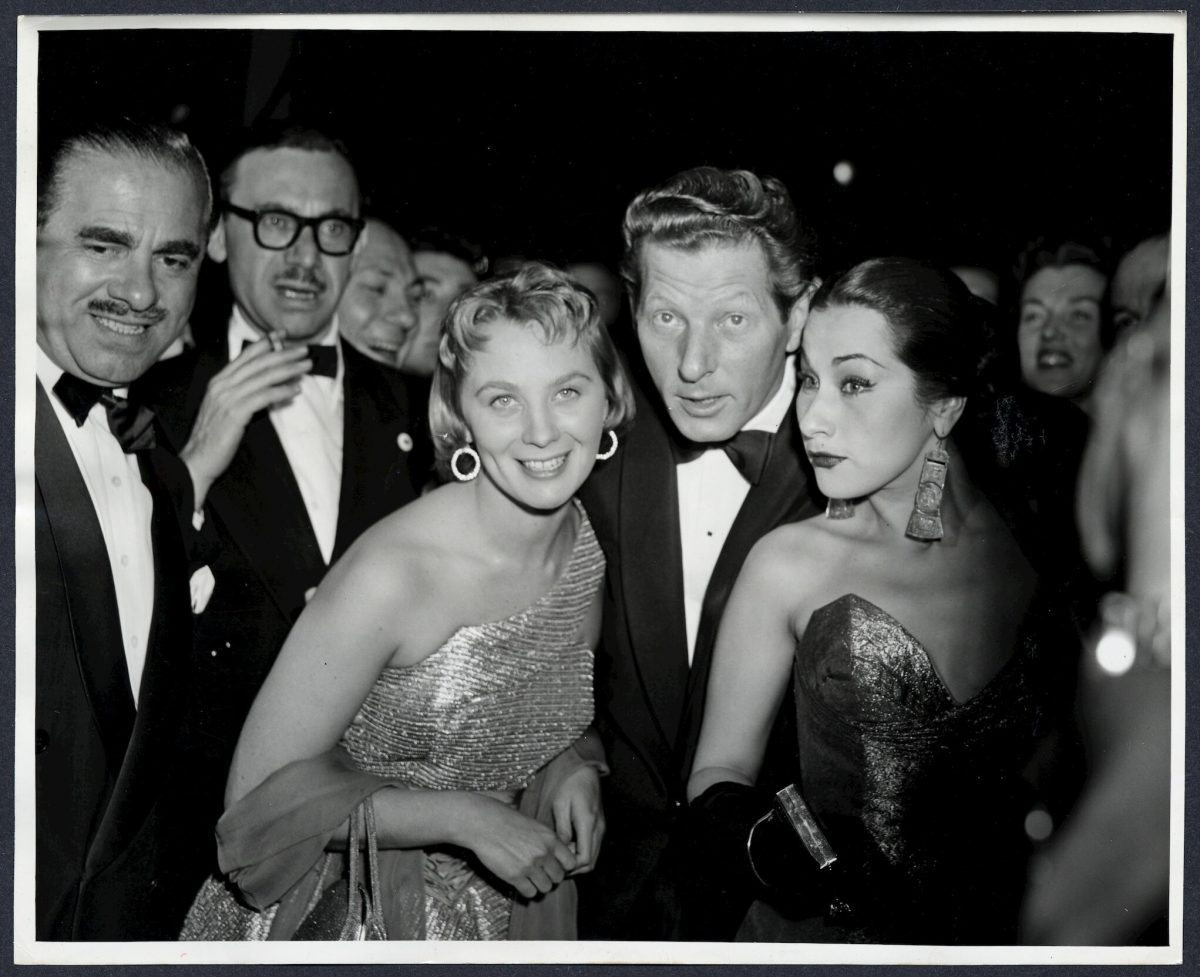
nny Kaye with Mai Zetterling, and Yma Sumac, the Peruvian singer on right. Mr. Nat Cohen is on left Notes – On back: X.22152 The European premiere of “Knock on Wood” in aid of the National Spastics society and the Variety Club Heart Fund, took place at the Plaza Theatrre, London, Tonight (Friday). 23/4/54.
While Nat Cohen turned back round to converse again with the nameless High Commissioner, Aspel introduced the next judge on the panel: “..The premier of Grenada, the Honourable Eric Gairy”. In Gairy’s case, the prefix ‘honourable’ although diplomatically correct, wasn’t particularly apt.
The Caribbean island of Grenada is located northeast of Venezuela and was a former French colony that was formally ceded to the British in 1763. A few Nutmeg trees were left there by a merchant ship eighty years later and nowadays the island is responsible for almost 40% of the world’s annual crop.
In 1950 Eric Gairy founded the splendidly named GULP (Grenada United Labour Party) which led a 1951 national strike for better working conditions. The strike soon evolved into unrest though out the island and it was announced that a General Election would be held in October 1951. Gairy’s party won 6 of the 8 seats contested and sixteen years later, in 1967, Grenada was granted full autonomy over its internal affairs with Eric Gairy serving as Premier.
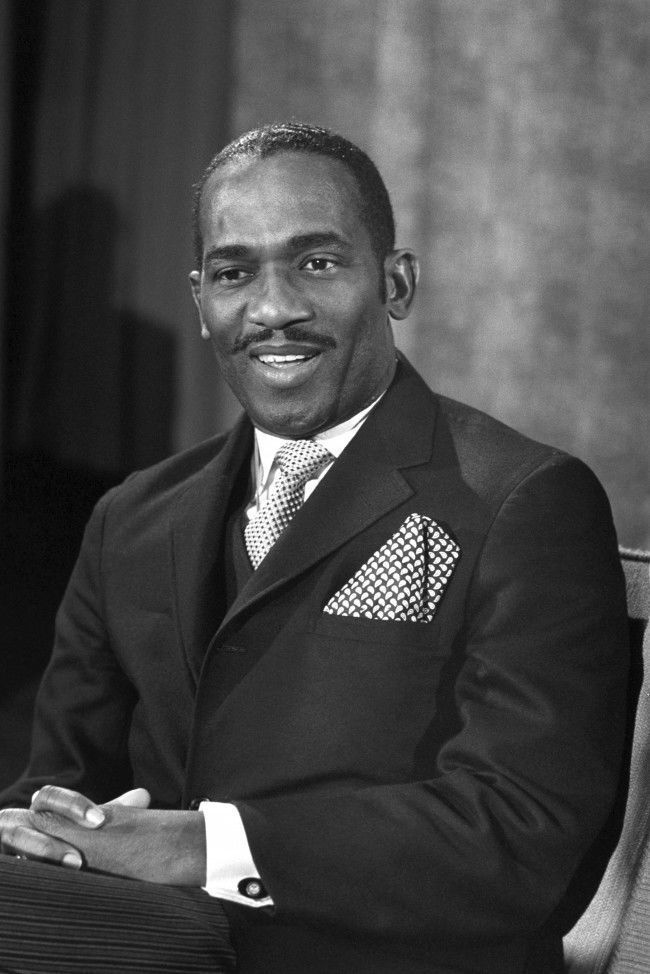
Eric Gairy two days after the Miss World ceremony in 1970.
Only a few months before the Miss World competition Gairy formed the infamous Mongoose Gang. It was sometimes called a private army but in reality it was just a nasty group of political thugs. Gairy used the gang for beating up and silencing critics, breaking up demonstrations, and even murdering political opponents. By 1970 Eric Gairy was as suspiciously rich as his country was distressingly poor. In May 1973 Gairy visited London and persuaded Edward Heath that Grenada should become independent. Just nine months later Gairy had his wish but not before the Mongoose gang killed Rupert Bishop the father of his main political opponent Maurice Bishop.
Two years later Gairy and GULP, amongst suspicions of tampered ballot papers, won all the seats in the 1976 elections. By now internal politics was boring for Gairy and he started to get obsessed about UFOs. In 1977 Gairy addressed the General Assembly of the United Nations where he urged the UN to establish an Agency for Psychic Research into both Unidentified Flying Objects and the Bermuda Triangle. The following year he tried to persuade the Assembly that 1978 should be called “The Year of the UFO”. Many in Grenada were acutely aware that their Prime Minister was becoming a worldwide laughing stock and it was while Gairy was in the US at a UFO meeting that his long-standing Maurice Bishop and his New Jewel Movement mounted a coup and took over the Government. Many people were wary of Bishop’s Cuban and Soviet Union connections and the Deputy Prime Minister Bernard Coard had Bishop illegally arrested. Within a few weeks Bishop and several members of his Cabinet were summarily executed. Maurice Bishop’s body has never been found. The death of Bishop caused international outrage and ultimately resulted in the American-led invasion in October 1983. After living in the United States Gairy returned to Grenada in 1984, and tried three times to regain power but all to no avail. After suffering a stroke he died on 23rd August 1997.
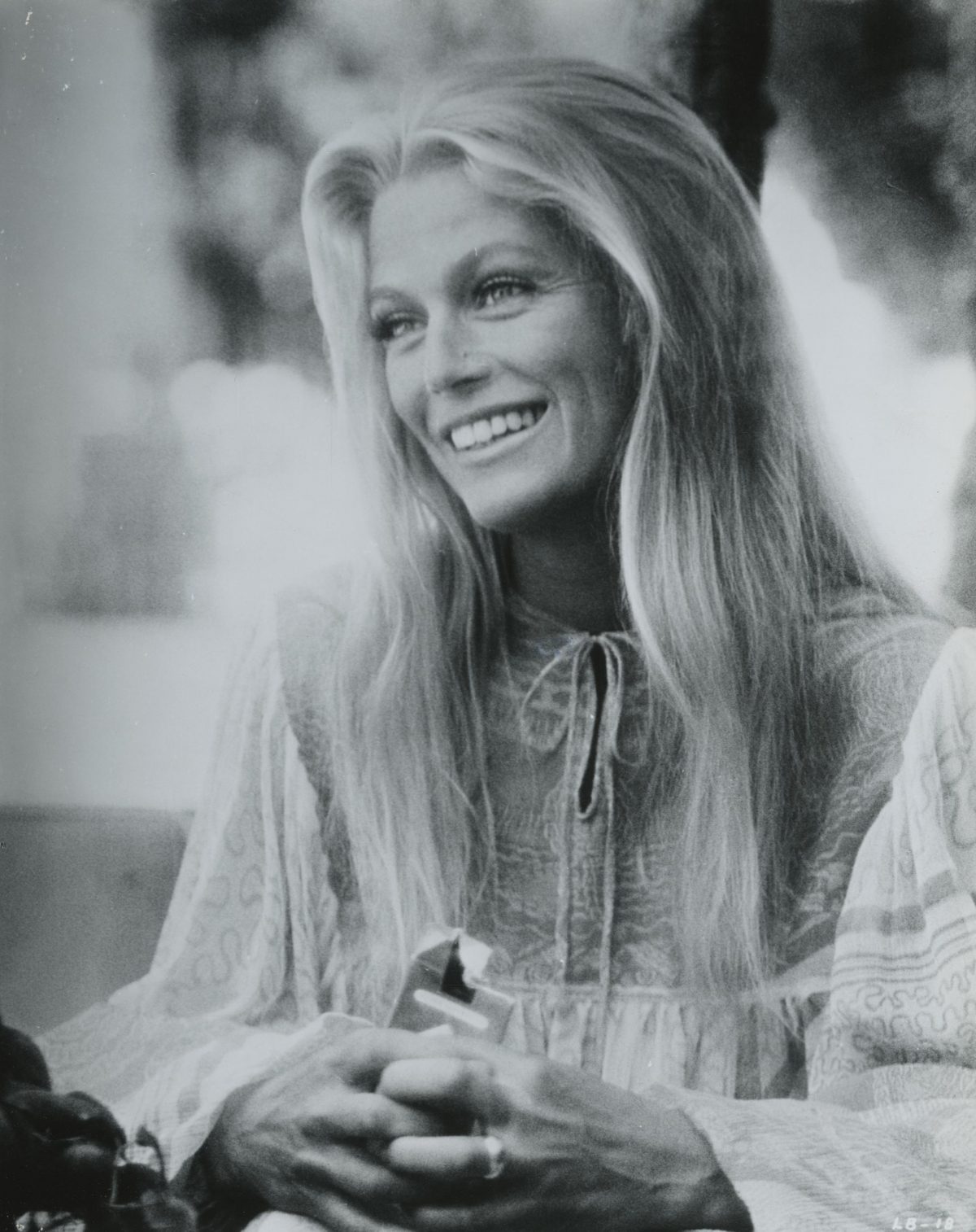
Michael Aspel continued to introduce the judging panel: “Just one name for our next judge but we all know it so well, Ladies and Gentlemen – it’s Nina!”. Her full name at the time was Nina Van Pallandt but even with the help of an added surname she’s largely been forgotten today. In 1970 she was still very famous for being part of the inexplicably popular Danish singing duo Nina and Frederik. Nina Magdelena Møller-Hasselbalch and Baron Frederik van Pallandt who was the son of a Dutch ambassador to Denmark, had been singing together since 1957 and in 1960 they got married. They had several execrable and almost racist calypso-tinged hits in the UK and a 1961 BBC series called ‘Nina and Frederik at Home’ soon followed. They remained a popular cabaret act throughout the world but the couple separated in 1969. As a solo artist Nina sang John Barry’s song “Do You Know How Christmas Trees Are Grown?” that same year. It featured on the soundtrack of On Her Majesty’s Secret Service and Nina performed it on Morecambe and Wise’s Christmas show that year.
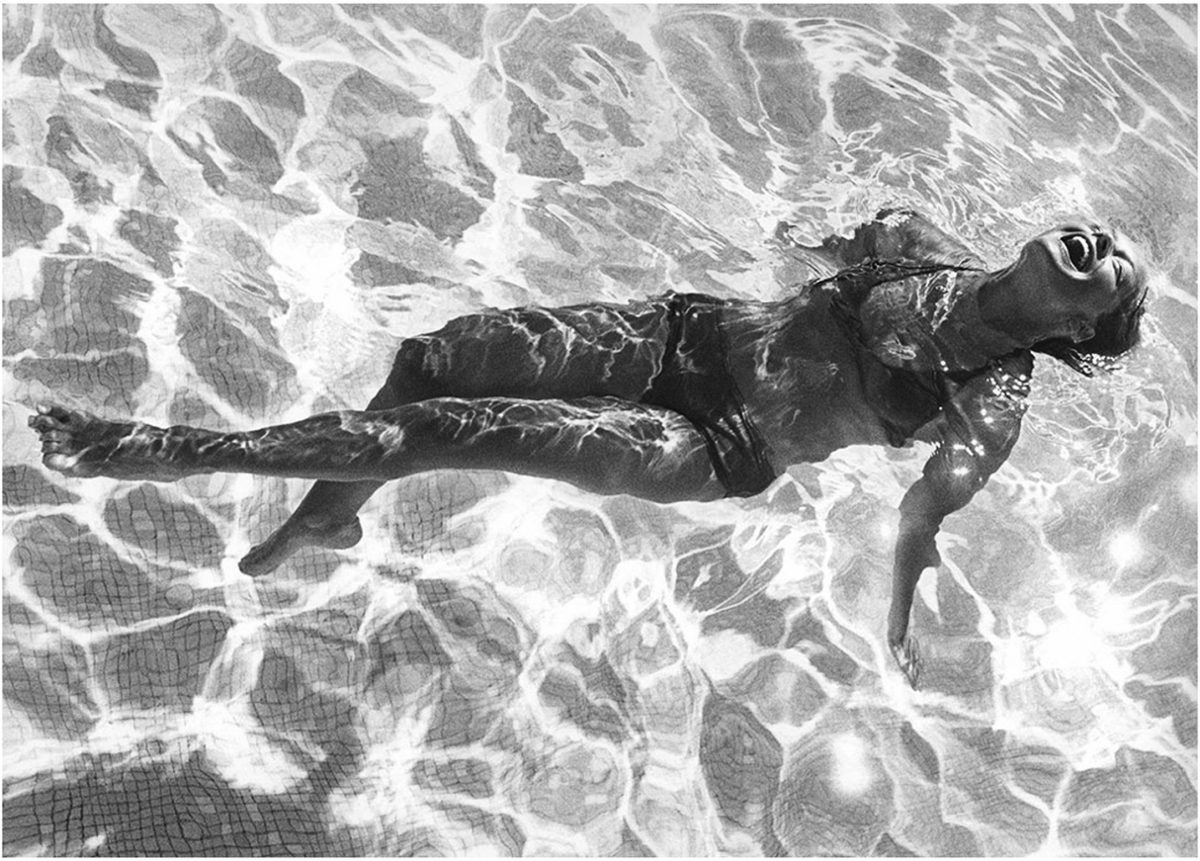
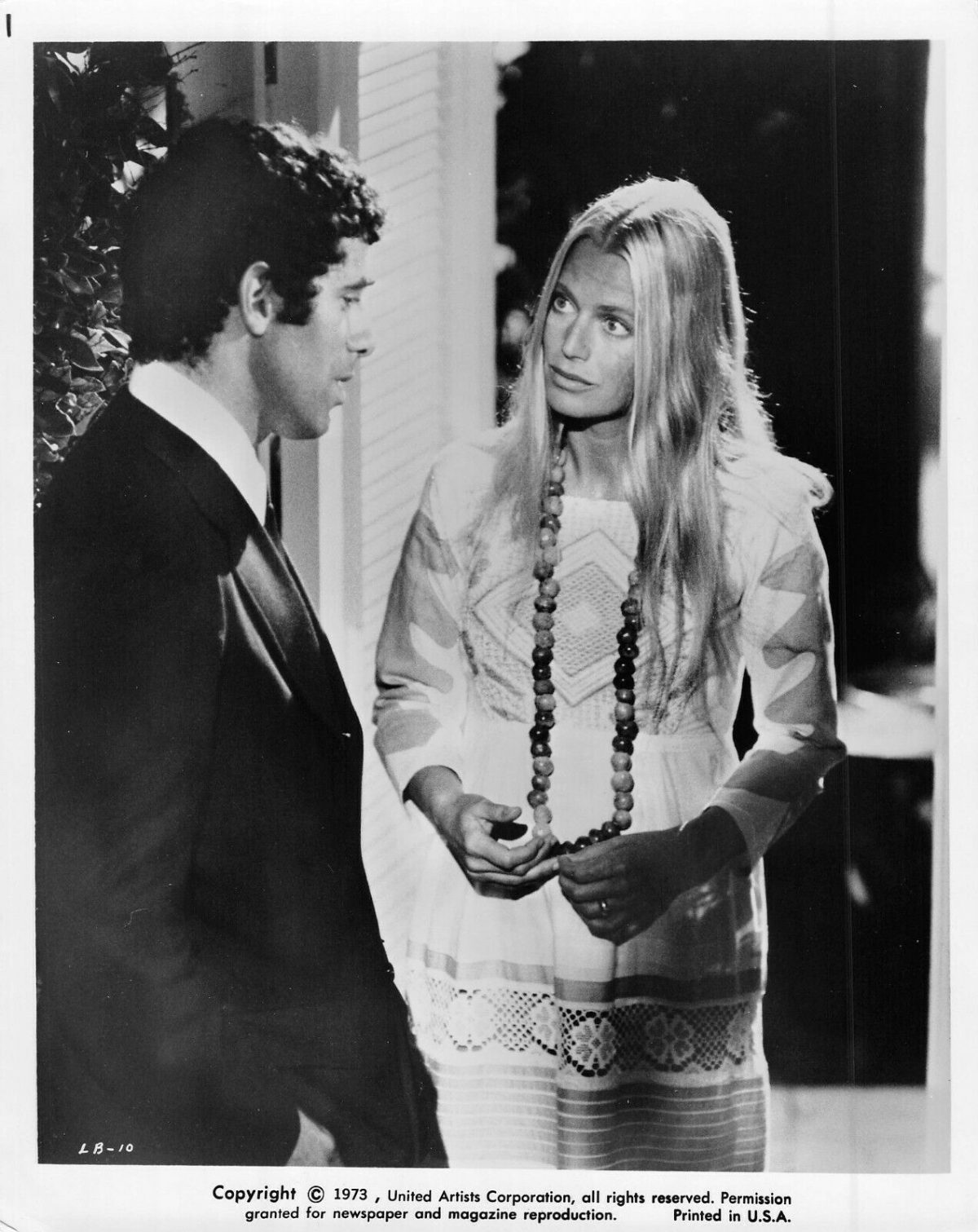
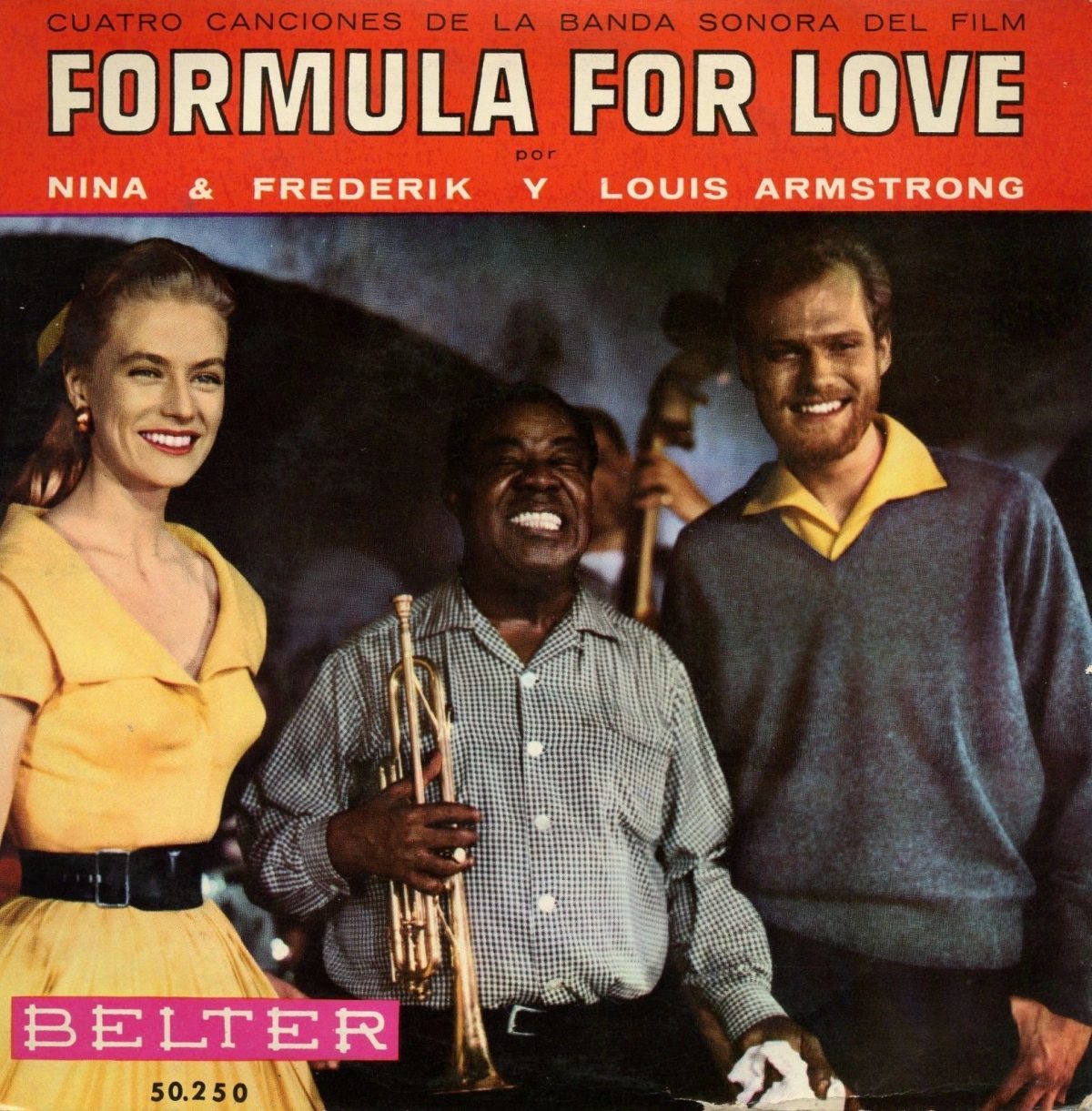
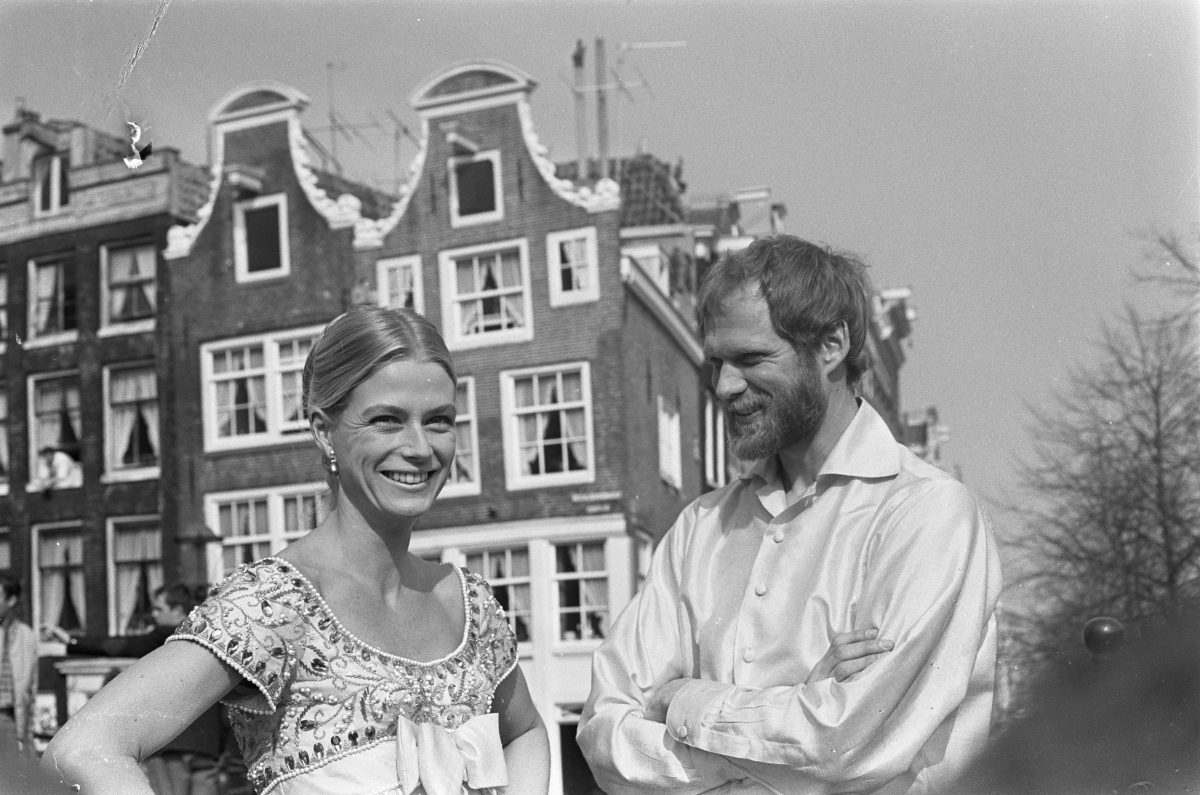
Nina en Frederik in Amsterdam, voor TV-film, Nina en Frederik op een van de bruggen Datum – 13 april 1967
In the early 1970s Nina van Pallandt became known in the United States, not for her singing career, but as the mistress of Clifford Irving – the man gaoled for faking the autobiography of Howard Hughes. Nina helped expose Irving when she revealed that she was on holiday with him when he had said he’d been meeting Hughes about the book. In the film ‘Hoax’, which featured Richard Gere as Irving, Nina is played by Julie Delpy. Although Nina herself appeared in another Richard Gere film – American Gigolo and she also acted in Robert Altman’s The Long Goodbye. Although some people say that the height of her screen career was the role in a 1988 episode of Tales of The Unexpected.
Her former husband Baron Frederik, meanwhile, had got mixed up with a major Australian crime syndicate. Tragically, in 1994 he was gunned down in the Philippines, along with his new wife, by a rival drug-running gang. It was Nina who flew to the Philippines to bring his body back to Europe.
Back to Miss World, Michael Aspel continued: “Now the chairman of our panel of judges and also general manager of BBC Outside Broadcasts Mr Peter Dimmock!” Mr Dimmock, who looked like, and was a former wartime RAF pilot, looked pretty calm considering what he had been through in the last 24 hours. At around 2.30am that morning a group of about four or five young people had gathered around one of the BBC’s outside broadcast lorries that had been parked at the side of the Royal Albert Hall. They slid a home-made bomb under the lorry and ran off quickly down Kensington Gore in the direction of Notting Hill. A small amount of TNT, wrapped in a copy of The Times, exploded a few minutes later waking up residents in a nearby block of flats, one of whom saw the youths running away.
The young men and women seen leaving the scene were members of a group of anarchists who would later call themselves ‘The Angry Brigade’. One can only imagine the fuss that would be caused by a similar bomb exploding today, but in 1970 it was hardly reported at all. It was actually just the latest incident in an anti-establishment bombing and shooting campaign by a group of young men and women who had been in existence, in one form other other, since 1968 when they exploded bombs outside the Spanish Embassy in Belgrave Square and the American Officers Club in Lancaster Gate. In August 1970 their campaign continued when they left a bomb outside the house of the Metropolitan Police Commissioner Sir John Waldron followed ten days later by a bomb at the Chelsea home of the Attorney General, Sir Peter Rawlinson. The young anarchists were utterly confused with the lack of publicity they were getting but eventually assuming, almost certainly correctly, that there was a conspiracy of silence on behalf of the establishment fearful that urban guerrilla activity would become in some way fashionable.
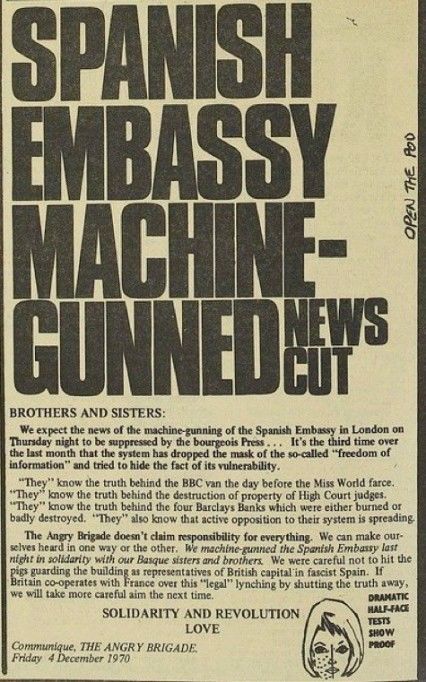
The Angry Brigade Communique published in the International Times, December 1970
On 4 December 1970, just two weeks after the Miss World bomb, a car drove around Belgrave Square and machine-gunned the Spanish Embassy. The young student militants were still non-plussed about the lack of media attention so they decided to issue a Communique to the underground press and, for the first time, it was signed – ‘The Angry Brigade’. The Python-esque name was grabbed gleefully by the popular press. Nobody really knows how the name came about except that it was thought up after a drunken Christmas party, although Stuart Christie, an anarchist and connected with the Angry Brigade, later wrote that they had toyed with the name ‘The Red Rankers’ referring to the speech defect of the former Home Secretary, Mr ‘Woy’ Jenkins. The newly monikered urban terrorists managed six more bombs including an explosion on May 1st 1971 inside the Biba boutique on Kensington Street. It was a shop that ‘the Angries’ thought was exploiting sweatshop labour and they issued another Communique.
“If you’re not busy being born you’re busy buying”.
All the sales girls in the flash boutiques are made to dress the same and have the same make-up, representing the 1940′s. In fashion as in everything else, capitalism can only go backwards — they’ve nowhere to go — they’re dead.
The future is ours.
Life is so boring there is nothing to do except spend all our wages on the latest skirt or shirt.
Brothers and Sisters, what are your real desires?
Sit in the drugstore, look distant, empty, bored, drinking some tasteless coffee? Or perhaps BLOW IT UP OR BURN IT DOWN. The only thing you can do with modern slave-houses — called boutiques — IS WRECK THEM. You can’t reform profit capitalism and inhumanity. Just kick it till it breaks.
Revolution.
Communique 8
The Angry Brigade
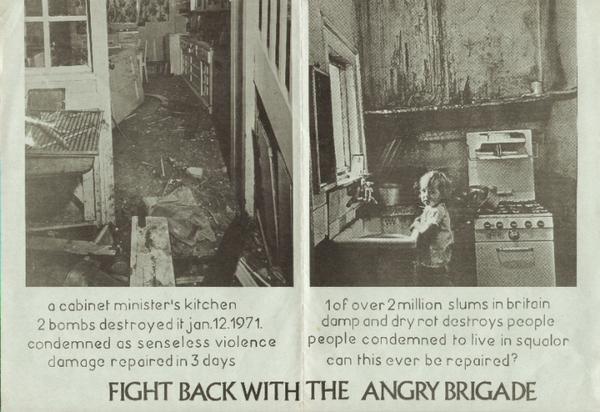
On August 21st 1971 the Special Branch and the CID raided a house at 359 Amhurst Road in Stoke Newington. They found various explosives, ammunition and guns but most damning of all a John Bull printing kit with the words ‘Angry Brigade’, rather incriminatingly, still set out. After, what was the longest criminal trial in English history a majority verdict of guilty for conspiracy ‘with persons unknown’ meant that four of the defendants, John Barker, Jim Greenfield, Hilary Creek and Anna Mendleson each received prison sentences of ten years despite the jury’s request for clemency.
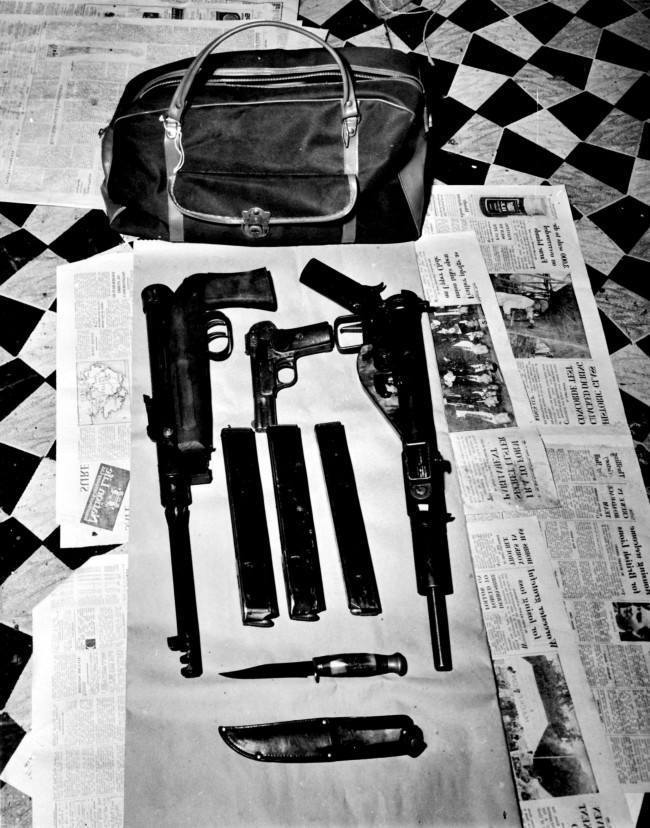
Scotland Yard issused this picture of a holdall and the weapons it contained. Some of the exhibits which helped to convict four of the accused in the Angry Brigade trial at the Old Bailey. *Police said the automatic weapons were used in attacks on the American and Spanish Embassies in London. The Holdall and it’s contents were found at a flat in Amhurst Road,Stoke Newington, North London.
After a very distinguished career Peter Dimmock, who been charge of the televising of the Queen’s coronation in 1953 and the first televised Grand National but also had been the first presenter of both Grandstand and Sports Personality of the Year, retired from the BBC in 1977. He is still alive aged 93.
The next bit of script on Michael Aspel’s cue card was: “Welcome home, the lady who’s working on a film called Quest which seems the right title in this context, lovely star – Joan Collins!” Born in Paddington in 1933, Collins trained at RADA before joining J. Arthur Rank’s ‘Charm School’ at the age of 17. She was soon appearing in British films such as Tough Guy and Cosh Boy and gained the nickname, ‘Coffee Bar Jezebel’. She moved to Hollywood in the mid-fifties but by the 1970 Miss World the decent roles were drying up and her marriage to Anthony Newley had recently come to an end. During her introduction Michael Aspel mentioned that she was filming a movie called ‘Quest’, and the following year it was released, almost without trace, as ‘Quest For Love’. The film, adapted from a John Wyndham short story, was a poorly-directed science-fiction romance (not the most popular of genres and watching this film you can see why) and Collins’ performance was by far the best thing about it. She must have particularly liked the white dress she wore for a party scene in the film as she wore it again for the Miss World contest.
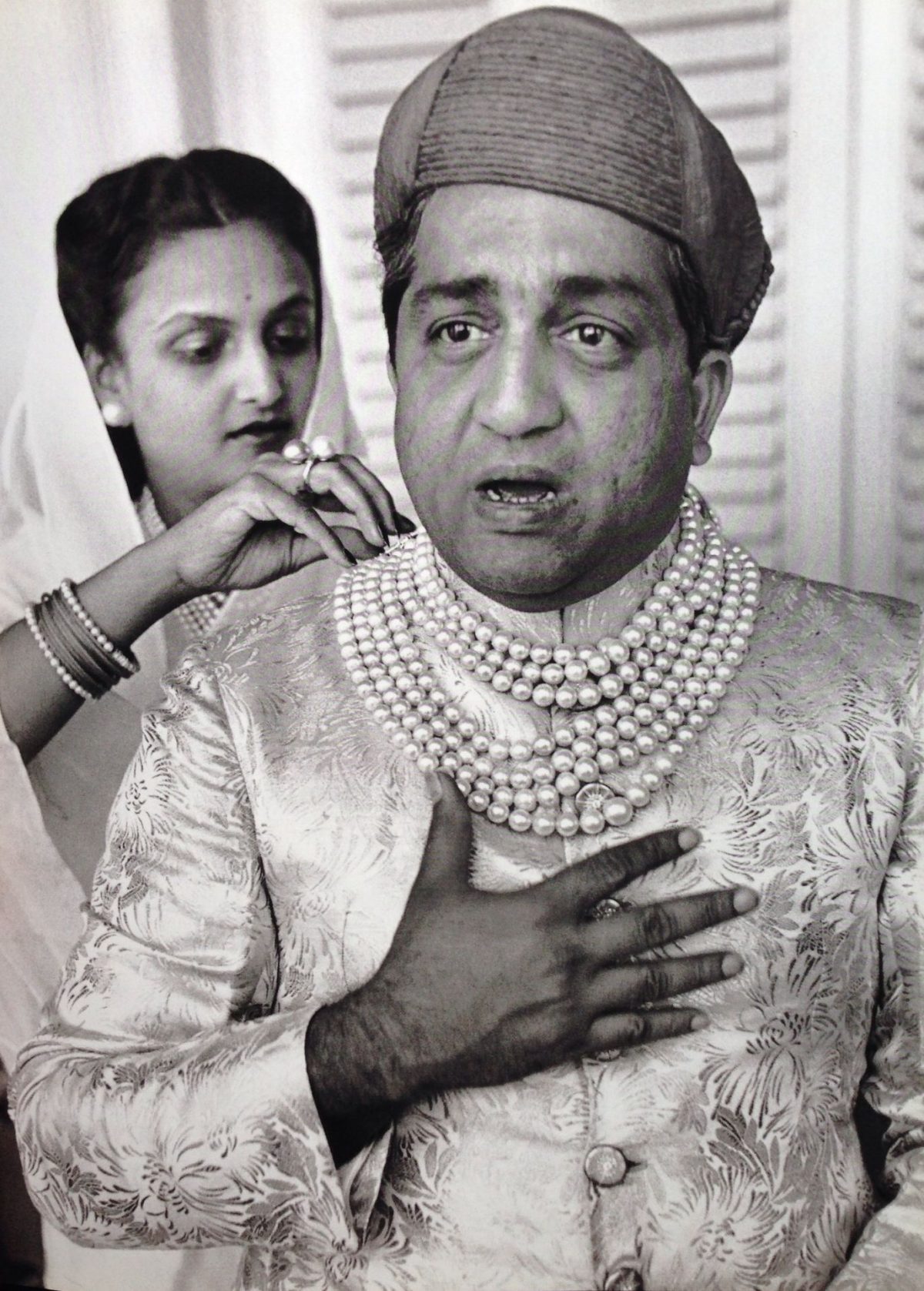
The next judge on Michael Aspel’s list was “his royal highness the Maharaja of Baroda”. The days of Maharajas seem to come from a different era and that’s because they are. Just a few months after the Maharaja stood up in the Royal Albert Hall, took a puff of his large cigar and bowed to the Miss World audience, the Indian parliament voted to abolish him or at least his title along with all official symbols of princely India including all privileges and remuneration. Fatehsinghrao Prataprao Gaekwad, to give the Maharajah’s full name, was often known in Britain as Jackie Baroda. He had managed the Indian cricket tour of England in 1959 (it lost miserably) and was an occasional cricket commentator on the BBC – John Arlott, not known for his deference, called him: ’The Prince’.
In the Guardian the Maharajah was once described (by a journalist who seemed to have not read the book) as a “swarthy Gatsby and the last of the legendary cricketing princes”. He had been born in 1930 to a world where family wealth was extraordinary and almost incalculable His father was once the second richest man in the world and whenever he appeared in public the British Raj would fire a 21-gun salute. When Jackie Baroda got married to an Indian Princess the procession was led by a mile of elephants. Despite the lack of Indian government financial support Jackie Baroda was hardly penniless when he died in 1988 at the relatively young age of 58.
After the Maharaja, Michael Aspel, happy that there was someone famous was on his list again, quickly continued: “Next, that recording star – by the time I get to Phoenix the contest will be over – Glen Campbell!” . Campbell was in London for a celebrity-adorned Royal charity gala, dinner and cabaret at the Talk of the Town on Leicester Square. In 1970 he still had a very clean-cut and well-groomed image. In an interview with the Daily Mirror, published the day after Miss World contest, he told the reporter that he was despondent about the current decadence in entertainment. “I’ve vowed not to sing songs that have anything to do with drugs…I’ve got a wife and four kids. I don’t want them to see me in anything I would be ashamed of. Artists have a special responsibility in what they’re doing.”
Within months Campbell left his wife, married another, divorced her and then had a tempestuous relationship with the country singer Tanya Tucker, 22 years his junior. All the while taking huge amounts of cocaine and alcohol. He was once arrested for drink-driving and leaving the scene of the accident. According to the police report when he was asked for his name he replied, “Glen Campbell, the Rhinestone Cowboy!” He then insisted that “he had never been drunk a day in his life, only over-served.” To underline his case he then kneed the officer in the groin. He was sentenced to ten days in jail. A republican for most of his life, in 1981 Campbell was once in a heated argument about his seat on a long-haul flight with a member of the Indonesian government. He told the politician that he was going to “call my friend Ronald Reagan and ask him to bomb Jakarta.”
Presumably Glen Campbell was more polite to the Indonesian sitting next to him on the Miss World judging panel. Michael Aspel introduced the next judge as: “His Excellency, the ambassador to Indonesia!” As with the High Commissioner the ambassador either had a name that was unpronounceable or he wasn’t deemed important enough to be given one.
Indonesia had been a Dutch colony from the very beginning of the 19th century but Japanese occupation during the Second World War ended the Dutch rule and encouraged the dormant Indonesian Nationalist movement. Only two days after the surrender of Japan in August 1945 Indonesia declared independence. The Netherlands tried to re-establish rule, and not without considerable violence, but it was to no avail and in the face of International pressure the Dutch formally recognised Indonesian independence in 1949. In 1965 an attempted coup by a communist group was violently put down by the military and it is estimated that half a million people were killed. The head of the army, General Suharto and supported by the US government, became president in March 1968.
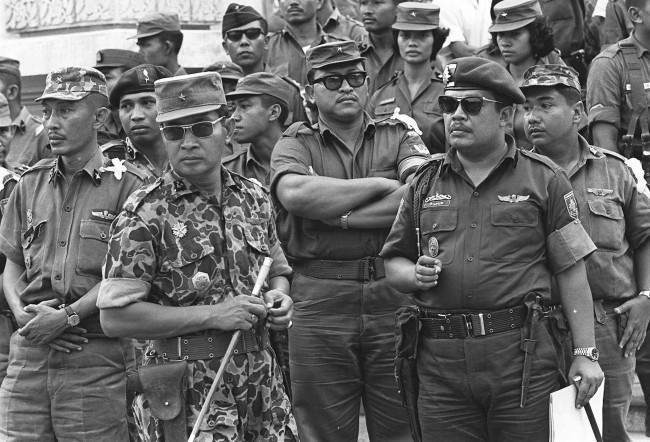
Maj. Gen. Suharto, 2nd left with sunglasses, is shown in this Oct. 6, 1965 file photo. Former dictator Suharto, an army general who crushed Indonesia’s communist movement and pushed aside the country’s founding father to usher in 32 years of tough rule that saw up to a million political opponents killed, died Sunday January 27, 2008. He was 86. (AP Photo, File)
There was one small problem, and it’s a problem that still rumbles on today. After independence the Netherlands tried to retain part of what is now part of Indonesia called West Papua as an operational base in Asia. In 1961, however, Indonesia invaded the adjacent region. President Kennedy, very keen on strengthening relations with Indonesia as a bulwark to the rising threat of Communism, persuaded the Netherlands to hand over West Papua. To placate the inhabitants of West Papua it was all subject to a UN supervised – “Act of Free Choice” vote that was scheduled for 1969.
When the AFC vote was due, the Indonesian military declared that the Papuans were too ‘primitive’ to cope with democracy and handpicked 1,026 leaders to vote on behalf of the entire West Papua population of one million. They lectured them on how to vote and then threatened to kill them and their families if they voted the wrong way, Not entirely surprisingly the 1,026 leaders unanimously voted by raising their hands in front of the UN observers. West Papua would remain part of Indonesia and with the encouragement of the US government the ‘vote’ was rubber-stamped by the UN. West Papua has remained under control of the Indonesian state ever since.
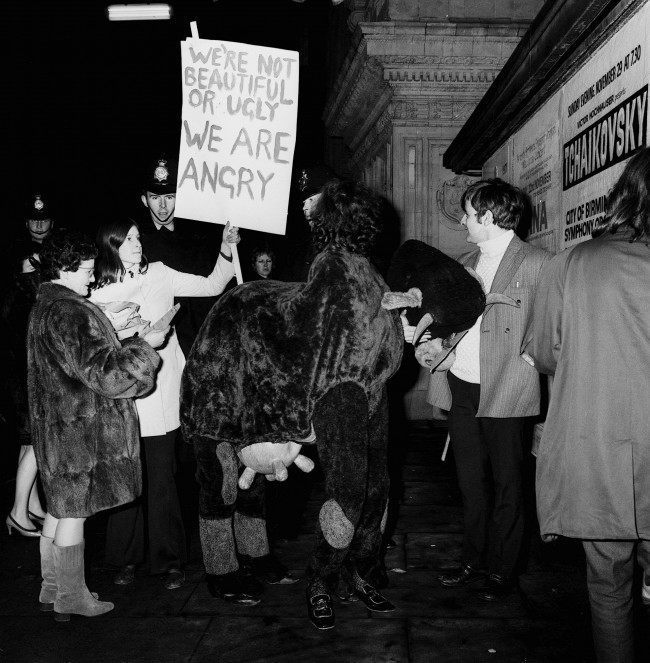
A demonstration by young Liberals against the Miss World contest outside the Royal Albert Hall where the event is being held. 1970.
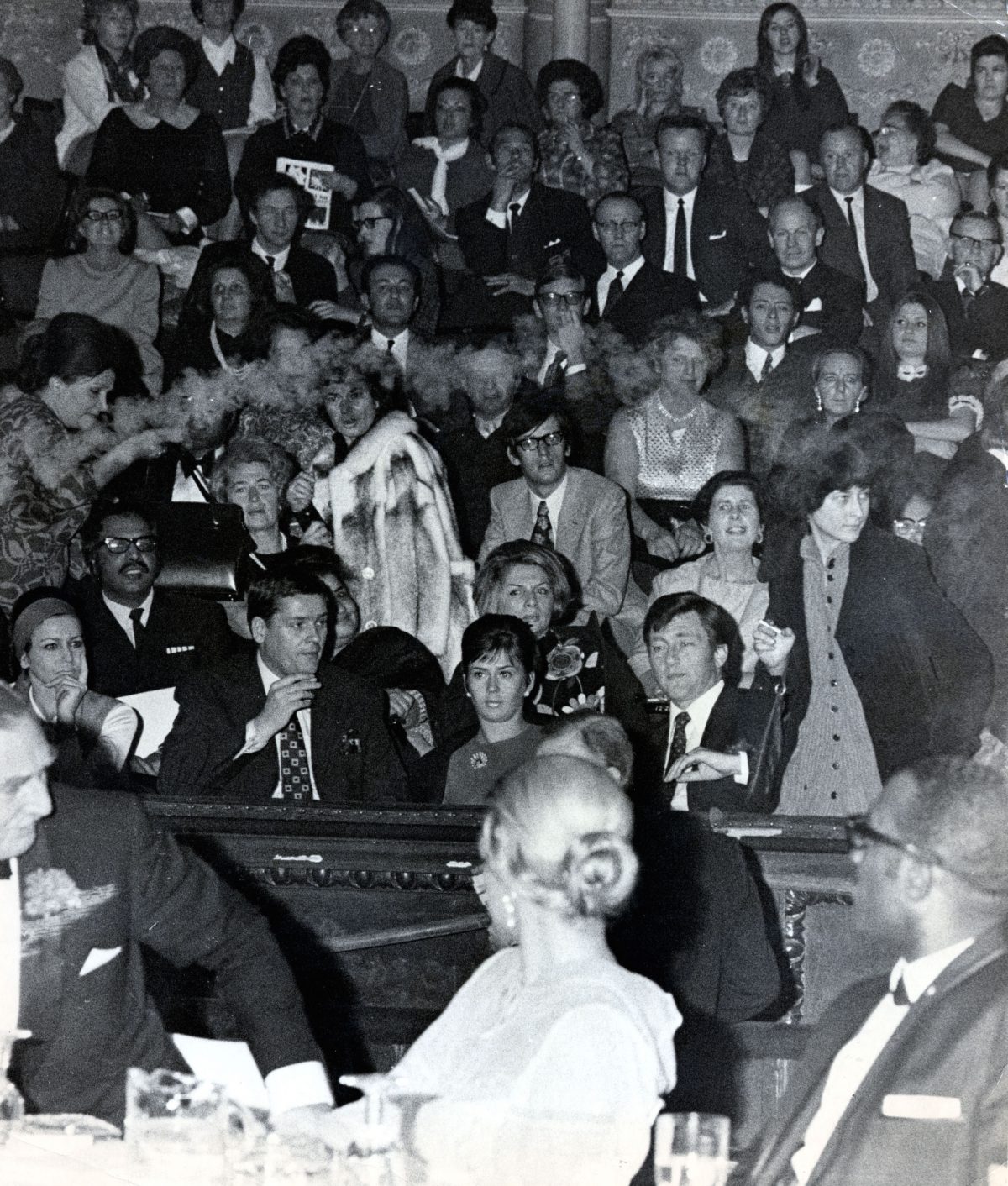
Demonstration By Members Of The Women’s Liberation Movement At The Miss World Competition Held At The Royal Albert Hall In London In 1970.
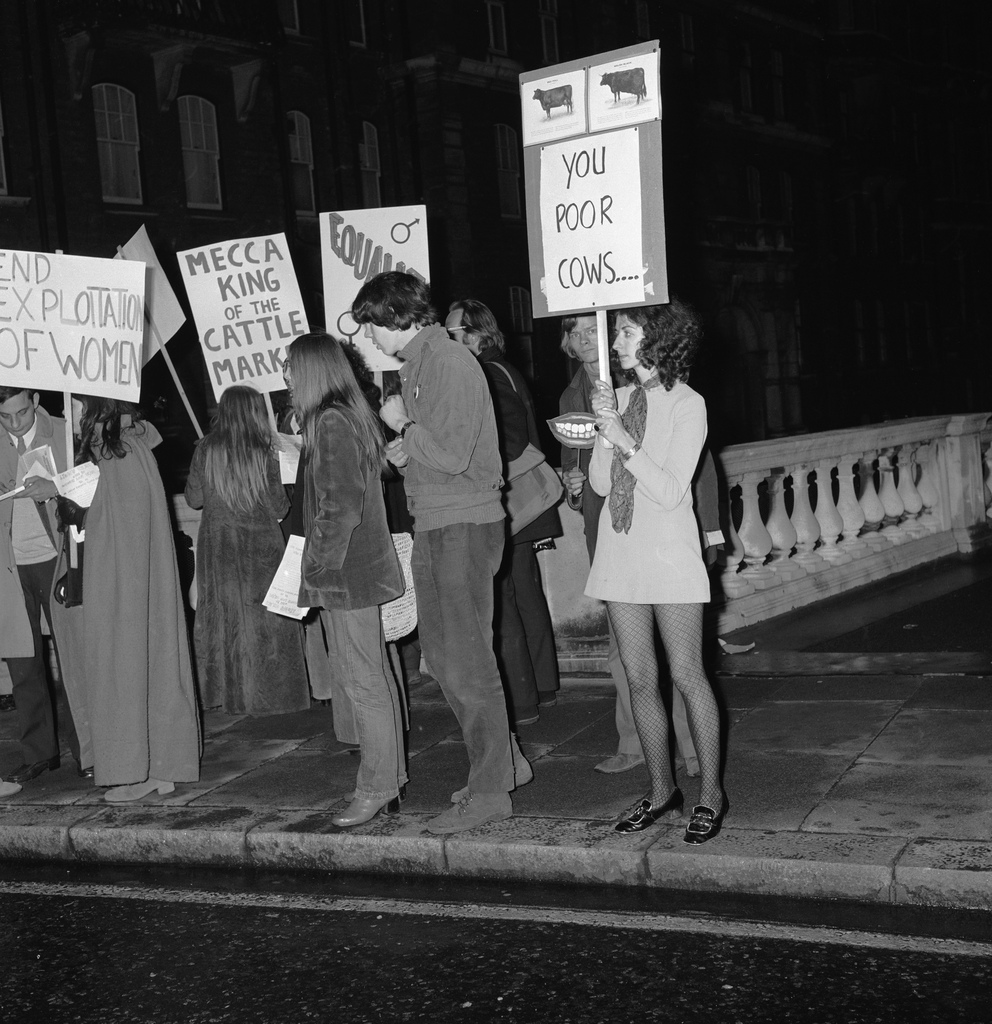
21st November 1970: The Miss World contest causes a feminist storm as protestors demonstrate outside the Royal Albert Hall where the contest was held. Some protestors even managed to infiltrate the show as the compere Bob Hope was on stage, and had to be forcibly ejected. (Photo by Leonard Burt/Central Press/Getty Images)
The Miss World contest of 1970, of course, isn’t famous for its motley crew of judges but for the feminist protest that took place in the middle of the show. While the judges were putting women in order of beauty, Bob Hope the London-born compere, came on stage to go through a comedy routine. All of a sudden about fifty women and a few men started throwing flour bombs, stink bombs, ink bombs and leaflets at the stage wile yelling “we are liberationists!”, “We’re not beautiful, we’re not ugly, we’re angry” and “ban this disgraceful cattle market!”. The worldwide live television audience couldn’t fail to notice what was happening. Bob Hope certainly noticed and he quickly tried to flee the stage as the missiles flew by. Julia Morley, the wife of the organiser Eric Morley, grabbed hold of his ankle in a desperate attempt to stop him leaving. It only took a few minutes for the police to restore order but ‘Women’s Lib’ had in one fell swoop established itself as part of the seventies.
A clearly shocked Hope was persuaded by Morley to get back on stage where, for once, not reading from idiot boards, he said: “These things can’t go on much longer. They’re going to have to get paid off sooner or later. Someone upstairs will see to that. Anybody who wants to interrupt something as beautiful as this must be on some kind of dope.”
The Sun, which the day before had stated, ‘we’re in for a long, hard winter’ because the ‘lovely Miss World girls have abandoned the mini-skirt for the midi’, rejected the ‘cattle market’ comparisons and declared ‘If you can’t stand the cheesecake, stay out of the market.’ The Mail described the demonstrators as ‘Yelling Harpies’ and asked what was ‘degrading about celebrating the beauty of the human body?’ There would not have been many people, even perhaps the members of the newly formed Women’s Liberation Movement that had protested that evening, who would have thought that the beginning of the end of Miss World as a huge global event was nigh. The BBC ended televising the show by the end of the decade.
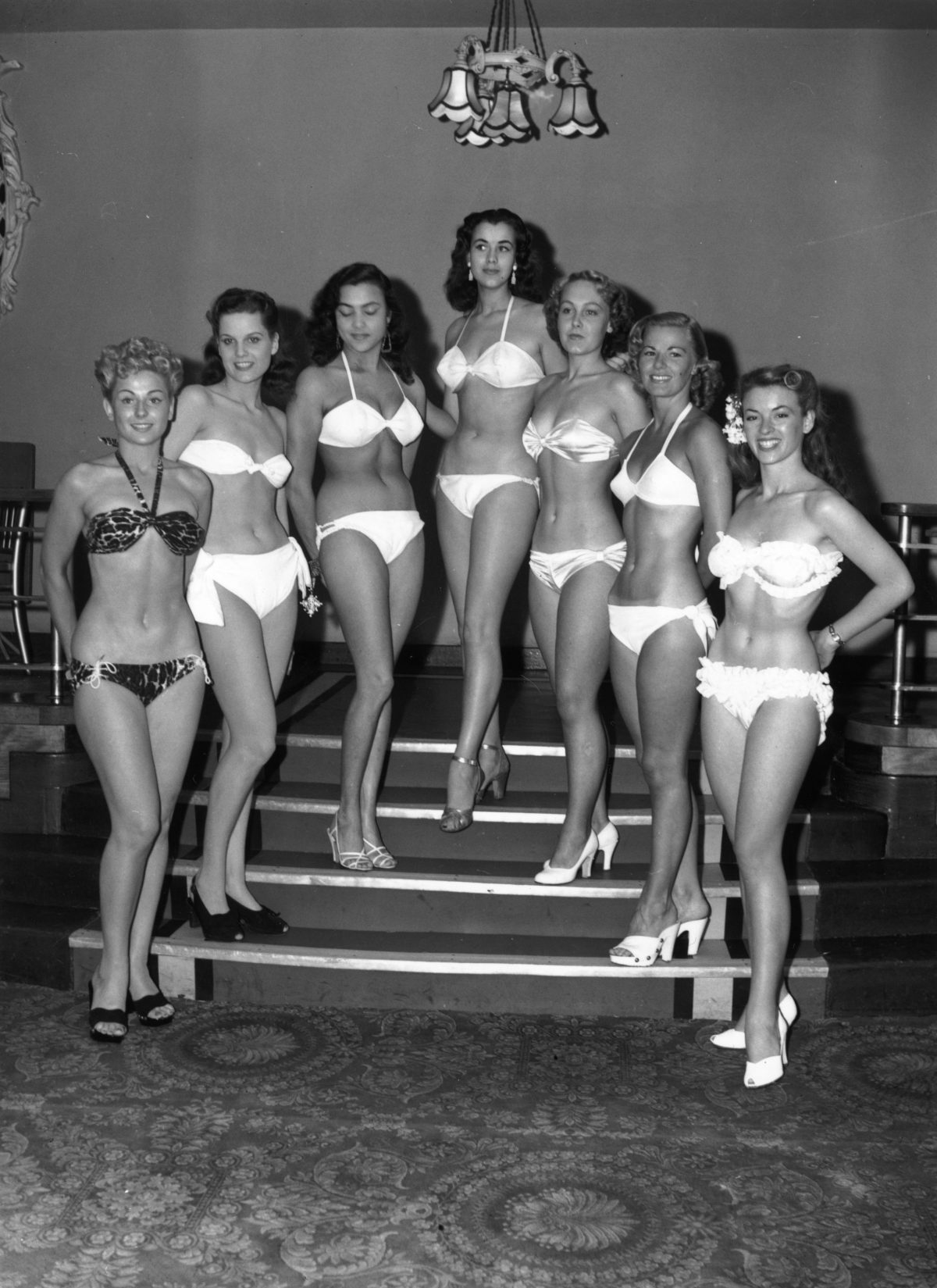
27th July 1951: Competitors in the first Miss World contest at the Empire Rooms on Tottenham Court Road, London. (Photo by Edward Miller/Keystone/Getty Images)
The world’s most famous beauty contest had started just twenty years previously in 1951 when an ex-squadron leader called Phipps was in charge of publicity for the upcoming Festival of Britain. He rang a former RAF friend, who was now running a catering and dancehall company called Mecca, asking for ways to add some “razzamatazz” to the rather sedate festival plans. He was quickly told “My man Morley will come up with something”. A few days later, over lunch at the Savoy, Eric Morley, who was already responsible for coming up with ‘Come Dancing’ for the BBC in 1949 and went on to popularise Bingo, suggested a ‘Miss World Festival Bikini Girl contest’. It went ahead and become a huge hit – a Swedish woman called Kiki Hakansson won the first prize of £1000.
When Miss Universe was launched in America the following year Morley successfully persuaded Mecca to make Miss World an annual event. The only change being that bikinis were to be banned, a strange decision by Morley, as a year previously he had said “Even a girl with big hips can be made to look good in a bikini.” He was later to describe the kind of girls he was looking for: “Girls between 17 and 25, ideally five foot seven, eight or nine stone, waist 22-24″, hips 35-36″, no more no less, a lovely face, good teeth, plenty of hair, and perfectly shaped legs from front and back – carefully checked for such defects as slightly knocked knees.”
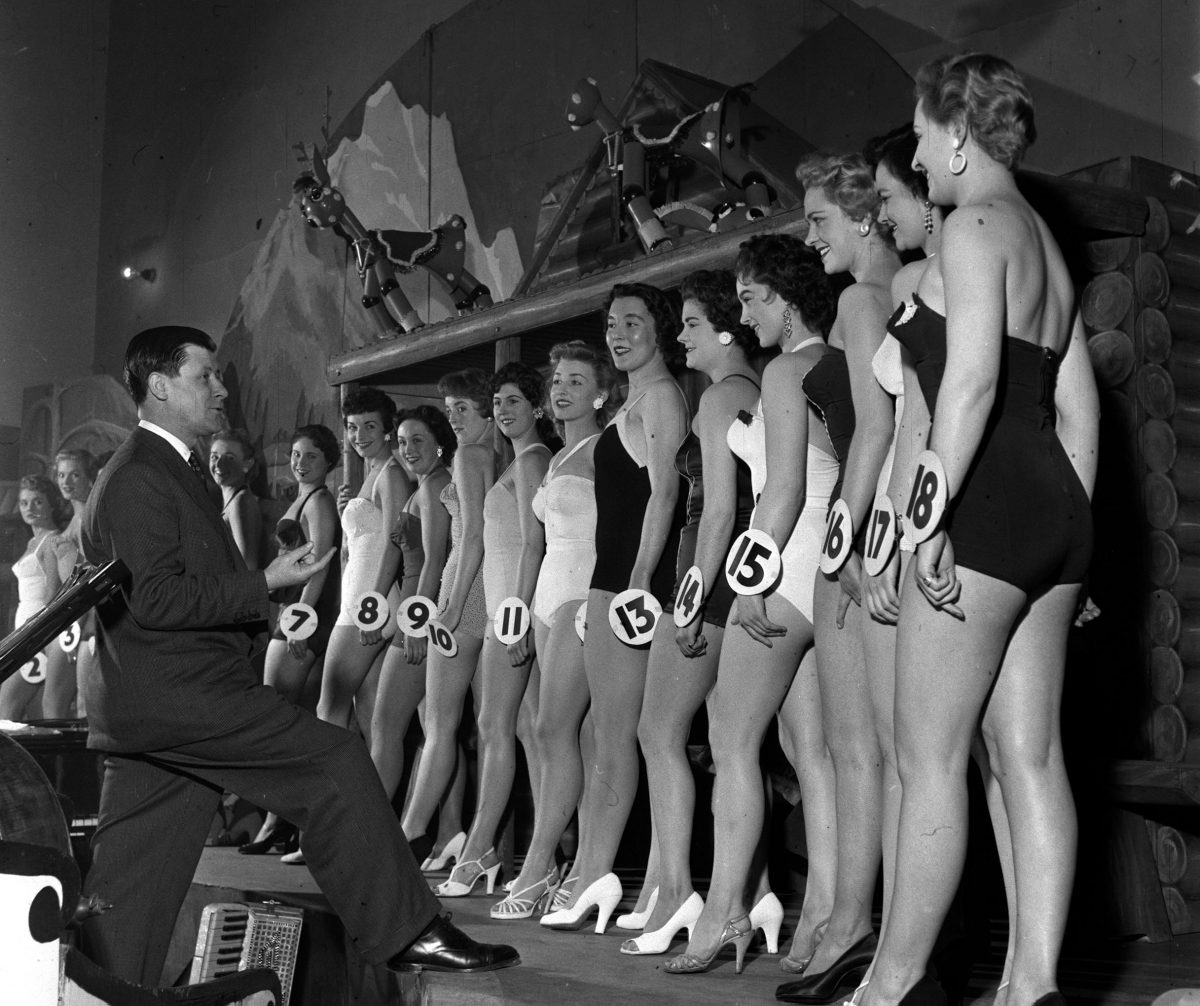
England, 1955, Competition organiser Eric Morley is pictured talking to the entrants for the “Miss England” beauty contest (Photo by Popperfoto/Getty Images)
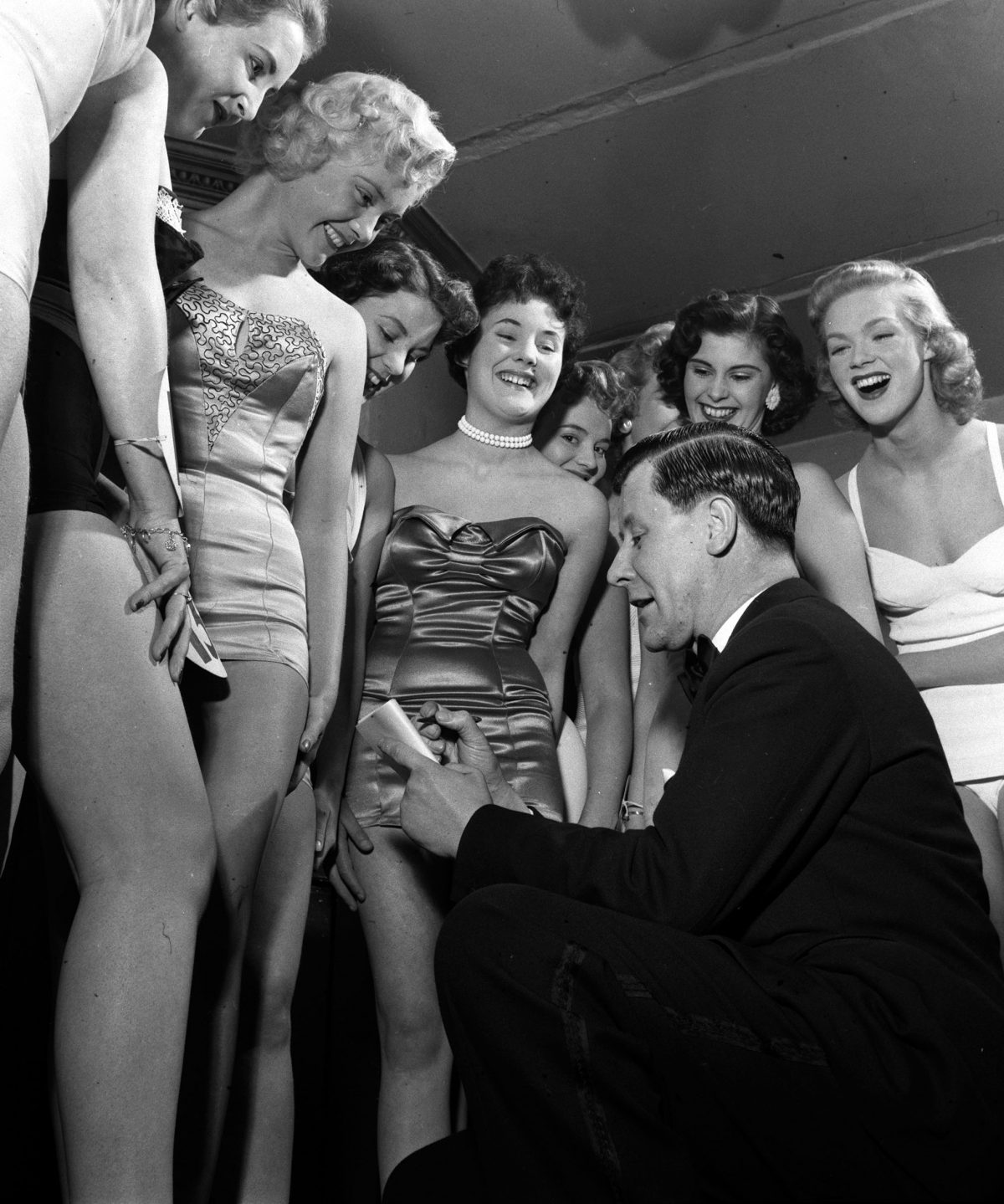
England, 1955, Competition organiser Eric Morley checks the names and numbers of the entrants for the “Miss England” beauty contest (Photo by Popperfoto/Getty Images)
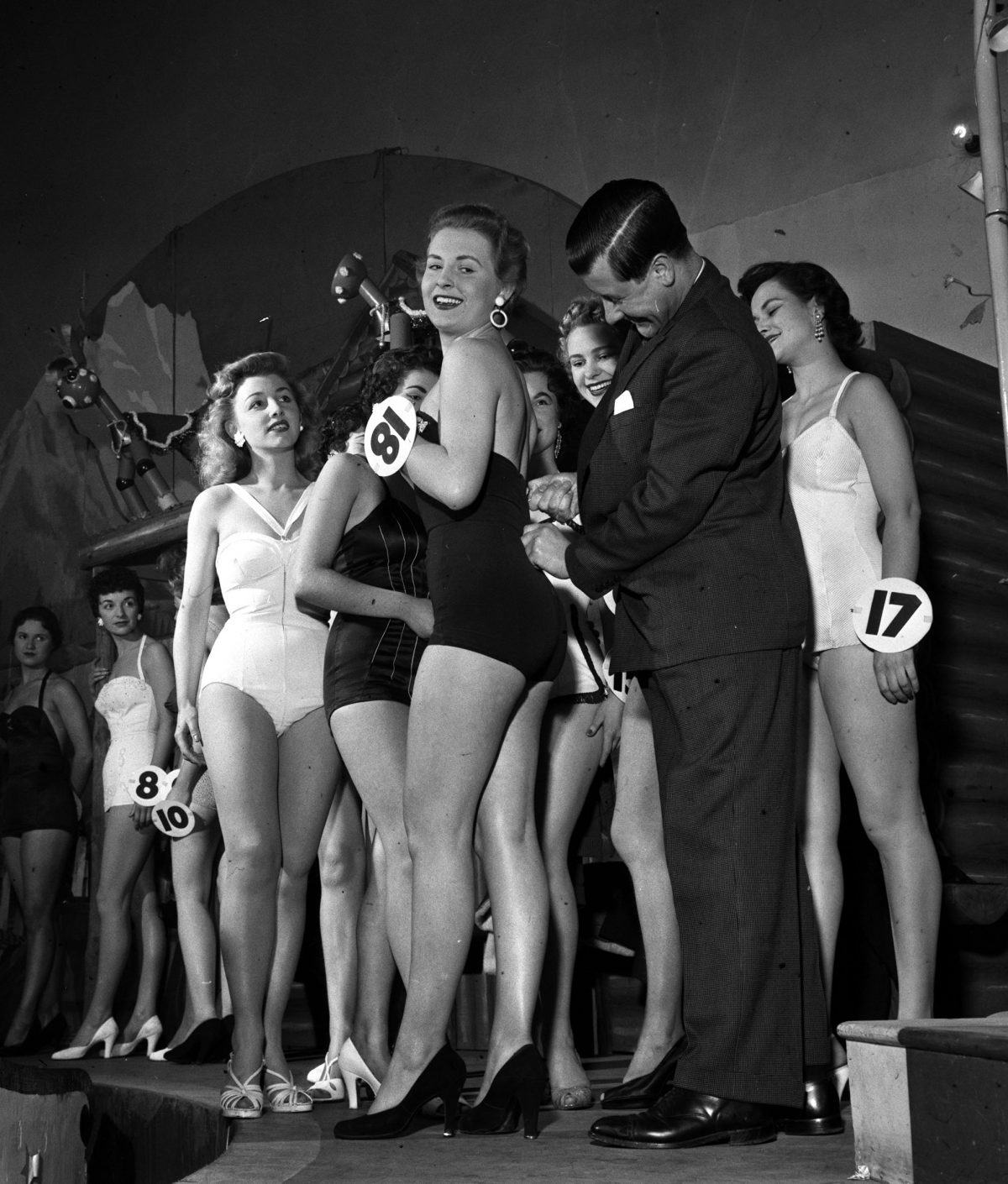
England, 1955, A picture at a heat in the “Miss Britain” beauty contest, showing competition organiser Eric Morley freeing a jammed zipper on a contestants outfit (Photo by Popperfoto/Getty Images)
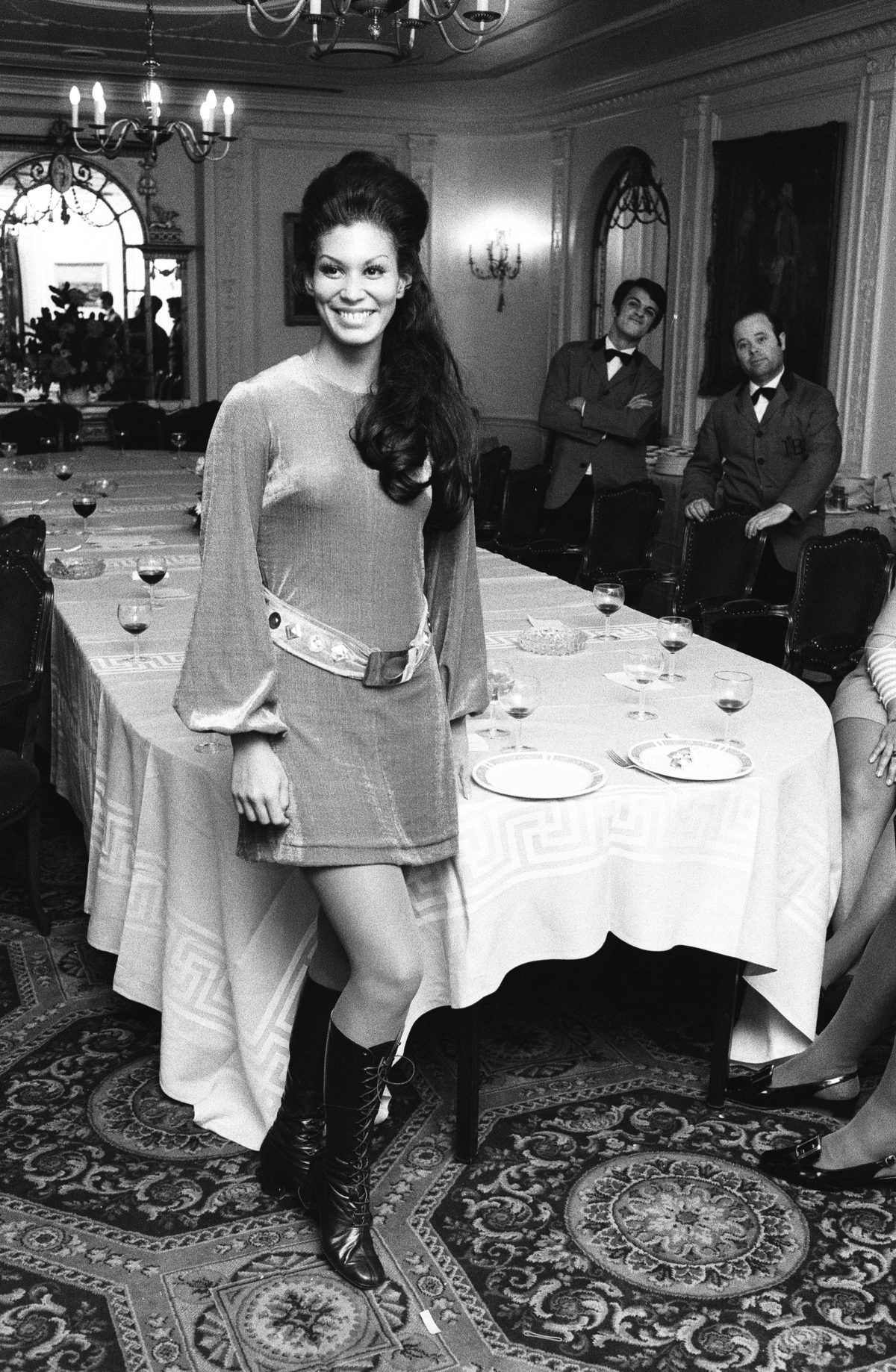
EN6G30 Jennifer Hosten, Miss Grenada, the day after being crowned the new Miss World at the Royal Albert Hall. 21st November 1970.
With hips two inches larger than Eric Morley’s ideal but thankfully no ‘knocked knees’ the eventual winner of the 1970 Miss World was the 22 year old Miss Grenada, Jennifer Hosten. She was the first ever black winner of the contest. In fact another black contestant – Miss Africa South, a Pearl Gladys Jensen, came second. Miss Africa South isn’t a typo by the way. Eric Morley had the bright idea that to placate the growing disquiet about apartheid he would admit to the contest a black and a white contestant from South Africa. Jillian Elizabeth Jessup, the white South African, and who was allowed the sash with the real name of her country, came fifth.
After the contest had come to an end many of the audience gathered outside the Royal Albert Hall to protest and started chanting ‘Swe-den, Swe-den’. The BBC also received numerous protests with accusations that the contest had been rigged. Four of the judges, it later came to light, had given first place to the Swedish entrant, a twenty year old model called Maj Christel Johansson but oddly she only came fourth overall. Miss Grenada, the eventual victor, had only got two first place votes from the judges. Was it more than a coincidence that one of the judges, Sir Eric Gairy, was the premier of Grenada? After all the population of the country was less than 100,000. Alan Whicker the TV travel reporter visited Grenada the following year and asked Gairy about the Miss World contest and the suspicions of a rigged vote. ‘It was denied” said Whicker with a very raised eyebrow, “that her election had anything to do with Mecca’s wish to open a gambling casino in Grenada.”
Would you like to support Flashbak?
Please consider making a donation to our site. We don't want to rely on ads to bring you the best of visual culture. You can also support us by signing up to our Mailing List. And you can also follow us on Facebook, Instagram and Twitter. For great art and culture delivered to your door, visit our shop.
